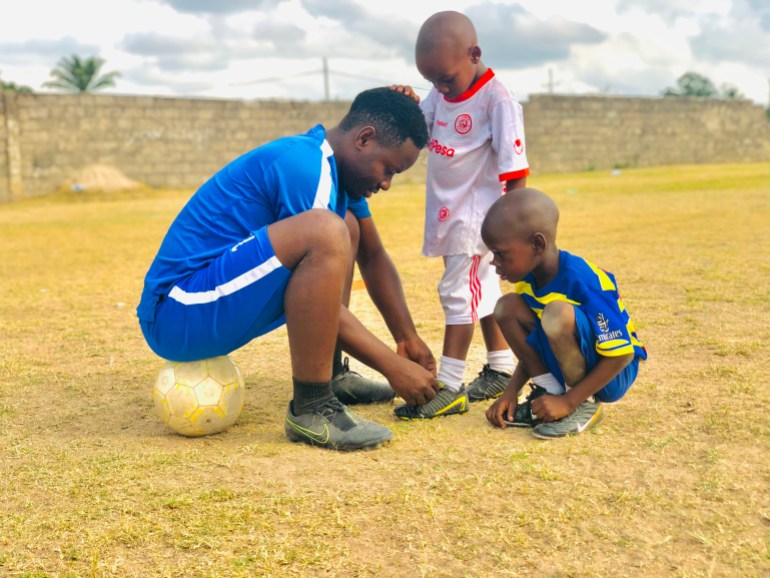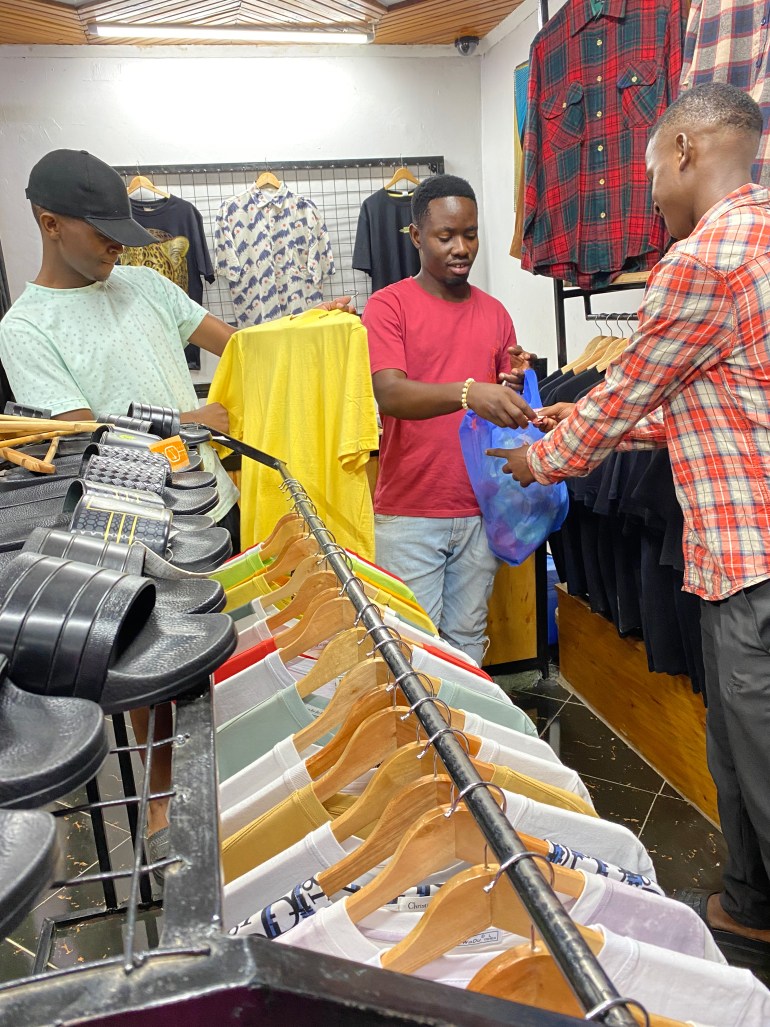Sadock John, from robbing houses to a football World Cup
Sadock grew up on the streets of Tanzania, playing football and being part of various gangs that would break into houses.
Sadock John grew up on the streets of Tanzania, playing football and being part of various gangs that would break into houses.
He says his father was a very rich guy, but life changed when he left the family. Here, John shares his journey from the streets of Tanzania to representing the country at the Street Child United World Cup and how football changed him.
My father was a goalkeeper for a military team in his village. My brothers also played football, so this sport was kind of me walking in their footsteps.
I was raised by a single mother in Mwanza after my father abandoned the family. He was one of the richest guys on my street. When he left, life became very hard for us. My mother was doing everything but most of the time she was sick and I had to go out to find anything to put food on the table for my family.
I was the fifth among six boys in the family. The life on the streets was very hard. You had to steal, to do anything, to survive.
Playing football on the streets was fun because that was one way to block everything else out and to remove the stress I was under.

Being a child on the streets is like being free physically but being in a prison mentally. You have to survive, find food, shelter and do everything on your own. Sometimes, you don’t even trust the person who is very close to you. Anyone can be your enemy and anyone can be a friend. That’s how it is on the streets.
I was this little kid, small and smart, I think. And that’s why the older boys liked me. They spent a lot of time with me. They wanted me in their gangs and used me to break into houses through the windows.
I was small enough to fit through, get inside and open the doors so we could steal. That’s how it was. People think street children are bad and that’s why they don’t want to be close to them but that’s not the case all the time.
I was selected to play for Team Tanzania at the 2010 Street Child United World Cup.
Football made me realise that life was more than what it was then. I’m not ashamed of sharing my story, of how I ended up on the streets and then how I got up from there.
Being a street child is not the end of the journey. You can make it out if you focus on what you want. For me, that was football then.

Before the World Cup, I didn’t know there were street children outside Tanzania. But I saw so many come from richer countries and that was the first lesson I learned at the tournament.
When I returned, life started changing. I wasn’t called a street child any more, but a role model. Other parents wanted me to be close to their kids, they wanted me to talk to them about my experiences.
Coaching football also improved my mental health. I was very happy doing that and listening to their stories as I could also relate.
As a child, I dreamt of being a footballer. That was my main goal, playing football at a higher level, being successful. But I had to look after my family and earn money.
That’s why I didn’t make it in football. In my community, when you play
football, if you get older and don’t give money to the family, people start talking and saying you’re wasting your time.
Football was my dream but as I grew up, I knew I wanted to be a businessman and an actor and that’s what my focus is right now.
Now I live about 30 minutes from where I grew up. I own a clothes shop. My dad died in 2005 and my mother died last year.
I’ve taken a huge step from where I was to where I am now. I was in a state where I needed help from others. Mentally, I don’t think I have recovered 100 percent from the experience on the streets. My father died in 2005 but it took me another 12 years to forgive him for what he did to us and for all the troubles in my life.
I’m also looking after a football academy that my friend founded. We work with young boys and girls, and this year started working with families and listening to the challenges they face.
As told to Faras Ghani.



